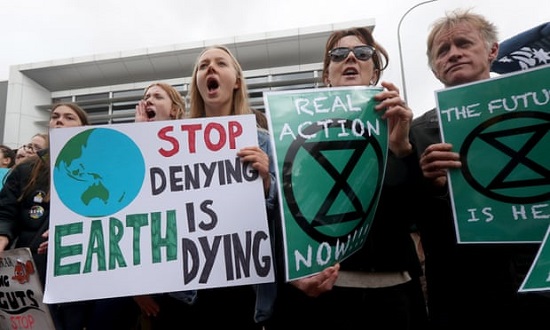
Story of the Week... Interview of the Week... Toon of the Week... Photo of the Week... SkS Spotlights... Coming Soon on SkS... Climate Feedback Reviews... SkS Week in Review... Poster of the Week...
‘We are in trouble if we don’t act,’ say experts, with up to 1m species at risk of annihilation

The world’s leading scientists will warn the planet’s life-support systems are approaching a danger zone for humanity when they release the results of the most comprehensive study of life on Earth ever undertaken.
Up to 1m species are at risk of annihilation, many within decades, according to a leaked draft of the global assessment report, which has been compiled over three years by the UN’s leading research body on nature.
The 1,800-page study will show people living today, as well as wildlife and future generations, are at risk unless urgent action is taken to reverse the loss of plants, insects and other creatures on which humanity depends for food, pollination, clean water and a stable climate.
The final wording of the summary for policymakers is being finalised in Paris by a gathering of experts and government representatives before the launch on Monday, but the overall message is already clear, according to Robert Watson, the chair of the Intergovernmental Science-Policy Platform on Biodiversity and Ecosystem Services (IPBES).
Biodiversity crisis is about to put humanity at risk, UN scientists to warn by Jonathan Watts, Environment, Guardian, May 3, 2019
The world has done little to tackle global warming since Bill McKibben’s landmark book on the subject was published in 1989. In an e360 interview, McKibben talks about the critical time lost and what can be done now to avoid the worst impacts of climate change.
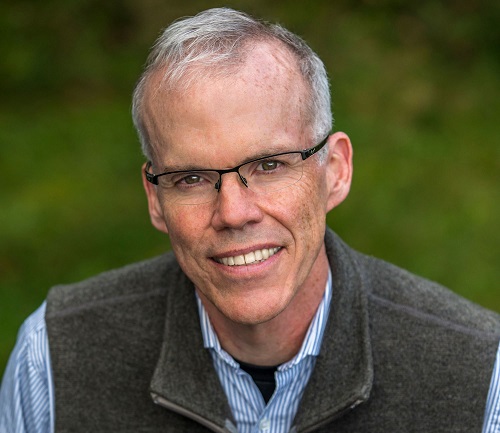
Three decades ago, Bill McKibben published The End of Nature, the first book on climate change aimed at a general audience. McKibben went on to found the international environmental group 350.org, help launch the fossil fuel divestment movement, and write a dozen more non-fiction books, as well as a novel. In 2014, McKibben received the Right Livelihood Award, sometimes referred to as the “alternative Nobel,” for mobilizing popular support for “strong action to counter the threat of global climate change.”
McKibben’s latest book, Falter: Has the Human Game Begun to Play Itself Out?, was published this month and debuted last week on the New York Times bestseller list. In an interview with Yale Environment 360 , McKibben talks about why the critical time for action on climate was missed, where he still finds hope, and what the world will look like three decades from now.
“Thirty or 50 years out, the world’s going to run on sun and wind, because they’re free,” McKibben says. “The question is… what kind of world will it be?”
Why Bill McKibben Sees Rays of Hope in a Grim Climate Picture, Interview by Elizabeth Kolbert, Yale Environment 360, Apr 30, 2019
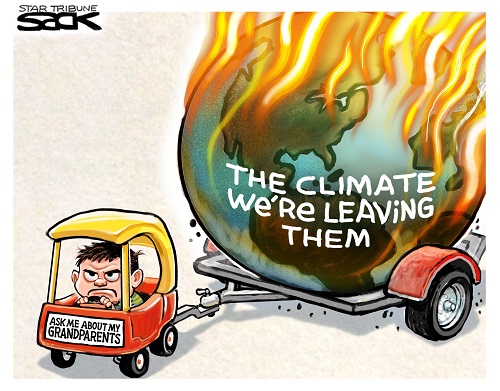
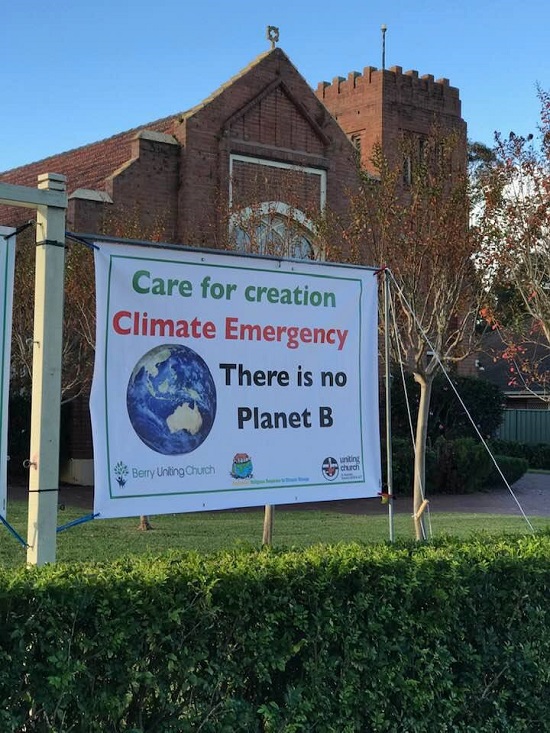
Source: FB Page of the Australian Religious Response to Climate Change (ARRCC)
![]()
In an effort to serve as the hub for climate-related information, data, and tools, the World Bank (WB) created the Climate Change Knowledge Portal (CCKP). The Portal provides an online platform for access to comprehensive global, regional, and country data related to climate change and development. The successful integration of scientific information in decision making often depends on the use of flexible frameworks, data, and tools that can provide comprehensive information to a wide range of users, allowing them to evaluate how to apply the scientific information to the design of a project or policy.
The CCKP provides a web-based platform to assist in capacity building and knowledge development. The portal aims to provide development practitioners with a resource to explore, evaluate, synthesize, and learn about climate-related vulnerabilities and risks at multiple levels of details. Using climate science research results to inform the decision making process concerning policies or specific measures needed to tackle climate impacts, or even to understand low carbon development processes, is often a difficult, yet crucial, undertaking.
The CCKP contains environmental, disaster risk, and socio-economic datasets, as well as synthesis products, such as the Climate Adaptation Country Profiles and Climate Smart Agriculture Profiles, which are built and packaged for specific user-focused functions in a particular country or sector. The portal also provides intelligent links to other resources and tools.
The CCKP consists of spatially and temporally referenced data. Users are able to evaluate climate-related vulnerabilities, risks, and actions for a particular location on the globe by interpreting climate and climate-related data at different levels of details.
[To be added.]
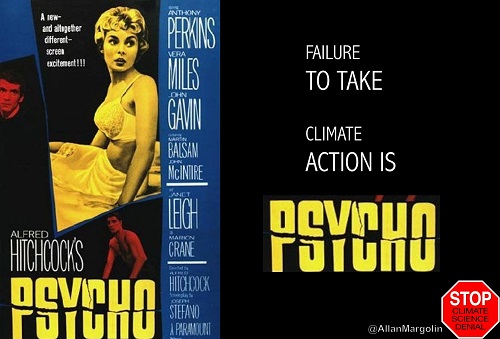
Posted by John Hartz on Sunday, 5 May, 2019
 |
The Skeptical Science website by Skeptical Science is licensed under a Creative Commons Attribution 3.0 Unported License. |